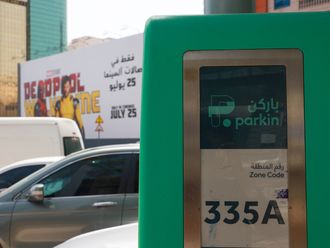Dubai: Draft regulations that could allow short-selling on the Dubai and Abu Dhabi bourses have been published on the website of the UAE's market regulator.
The Securities and Commodities Authority (SCA) posted the regulations on Thursday, and invited suggestions on the law before November 17.
The draft regulations cover short-selling through authorised brokers, security lending and borrowing and other market regulations. They will look to allow investors to short-sell, but the SCA can ban short-selling under special circumstances, according to the draft.
Short-selling is currently not permitted in the UAE's two markets and analysts have speculated that this is one of the reasons for falling trading volumes in recent years.
Weakened appetite
Volumes in Dubai and Abu Dhabi have fallen as a result of heightened volatility across international equity indices, leading to a weakened appetite for risk and a lack of interest in the region among institutional investors.
But Mohammad Ali Yasin, chief investment officer at CAPM Investment, told Gulf News last week that markets in Europe and the United States remained more popular because of the options open to traders.
"Foreign investors are not looking to the UAE. In the United States and Europe they have other investments, such as derivatives and options, and short selling is also permitted," he said.
"In the UAE it is a case of buying a stock and waiting for it to go up in value."
The Dubai Financial Market (DFM) and Abu Dhabi Securities Exchange have been considering a number of new regulations as they look to improve trading in the markets.
These moves have accelerated ahead of the upcoming classification review by Morgan Stanley Capital International (MSCI), which will announce next month whether the UAE, along with Qatar, is eligible for an upgrade to emerging market status.
Some brokerages in the UAE have been forced to shut down as turnover on the DFM and the Abu Dhabi bourse slumped to seven-year lows in 2011, while Nasdaq Dubai — part of DFM — trades less than $3 million (Dh11 million) daily.
Last week, investment bank Al Mal Capital announced it was winding down its brokerage business with the loss of eight jobs. Meanwhile, HSBC Middle East Securities, the local brokerage arm of Britain's biggest bank, also plans to halt its retail operations to focus solely on institutional clients.
The new rules may improve the UAE's chances of being upgraded to emerging market status by the MSCI, which is expected to take a decision by December.
The MSCI delayed its decision from June to allow it to get more feedback on the UAE bourses' new delivery versus payment settlement systems, the international standard.
— With inputs from agencies












